When water starts collecting in your shower or your sink drains slowly, the cause could range from a minor clog to a serious sewer line blockage. A clogged drain is inconvenient, but a clogged sewer line can affect your entire plumbing system, leading to sewage backups, unpleasant odors, and even water damage in your home. Knowing which problem you’re facing can save you time, money, and frustration, and Dan’s Drain Services can help you determine the difference between the two and which services you need from our Medina crew.
Understanding Your Plumbing System
Your plumbing system works like a connected network of roads. Smaller drain lines carry wastewater from fixtures such as the sink, toilet, shower, and bathtub. These smaller lines flow into a main sewer line, where everything then is funneled to either the city system or your septic tank.
When you notice slow drainage or unusual sounds, the location of the issue can tell you a lot. A single clogged drain usually means the problem is isolated to one pipe. If several fixtures are acting up at once, the sewer line may be to blame.
Signs of a Clogged Drain
A clogged drain typically affects one fixture. You might notice:
- Water draining slowly from the shower, sink, or bathtub
- Gurgling noises from a single drain
- A bad odor coming from one location
- Standing water that won’t go down, even after using a plunger
Common household issues like hair, soap buildup, grease, or excess toilet paper often cause these blockages. In kitchens, food debris and oil can collect in your pipes, while in bathrooms, hair and soap residue are the main culprits. If you notice a problem in just one room or pertaining to only one fixture, it’s most likely a clogged drain.
Signs of a Clogged Sewer Line
A clogged sewer line is more serious and affects the entire home. When the main line becomes blocked, wastewater cannot flow out properly, leading to backup in lower drains and widespread issues across multiple plumbing fixtures.
The following are sewer line blockage symptoms that should not be ignored:
- Several drains in your home running slowly at the same time
- Sewage backup or pooling water around the floor drain or in the basement
- Gurgling or bubbling in the toilet when using the washing machine or sink
- Unpleasant odors coming from more than one drain
- Strange noises from pipes as wastewater tries to pass through the blockage
If you experience more than one of these symptoms, the main sewer line is likely blocked. Ignoring it can lead to serious wastewater backup and expensive repairs.
What Causes Sewer Line Clogs?
Several factors can lead to a clogged sewer line:
- Tree roots can grow into underground pipes in search of moisture, creating a dense web that catches debris and waste.
- Accumulated grease, debris, and organic matter can harden inside pipes over time.
- Older pipes may corrode or collapse, restricting water flow.
- Using chemical drain cleaners too often can damage pipe walls, leading to leaks.
- Changes in water pressure or shifting soil can also weaken or crack sewer lines.
Because sewer line clogs often develop slowly, by the time symptoms appear, the blockage is usually significant and needs immediate attention.
Why DIY Fixes Often Fall Short
It’s tempting to grab a plunger or a bottle of chemical drain cleaner when water stops draining; however, these “quick fixes” can make matters worse. Chemical drain cleaners can cause corrosion that weakens pipes, and using a snake without proper training can damage them further. Even if water starts flowing again, you may have only moved the clog deeper into the system.
Professional plumbers rely on advanced tools like camera inspection equipment to locate and identify clogs accurately. This process eliminates guesswork and helps determine whether the issue is in a single drain line or the main sewer pipe. From there, they can recommend the right fix for drain or sewer cleaning, which might include hydro jetting, mechanical snaking, or pipe replacement.
Preventing Future Clogs
Regular maintenance is the best way to avoid future plumbing issues. Here are a few easy habits that can keep your drains clear:
- Only flush toilet paper and wastewater down the toilet.
- Keep grease, oil, and food scraps out of the kitchen sink.
- Use drain strainers in the shower, sink, and bathtub to catch hair and debris.
- Schedule regular camera inspections if your home has older plumbing or large trees nearby.
- Consider leak detection services to identify small leaks before they cause damage.
Avoid relying on chemical drain cleaners and instead use gentle, enzyme-based products that safely break down organic matter without harming your pipes or contributing to water pollution.
Contact Dan’s Drain Services for Reliable Drain & Sewer Services
If your shower, toilet, or other home fixture is showing signs of slow drainage, strange noises, or unpleasant odors, the problem could be more than a simple clog. In these times of need, Dan’s Drain Services provides professional plumbing and drain cleaning solutions for homeowners in Medina, OH, and the surrounding areas. With advanced inspection cameras, proven cleaning methods, and honest pricing, we are the region’s top team to handle everything from minor drain clogs to major sewer line repairs.
Don’t wait for a small problem to turn into a costly backup or leak. Contact Dan’s Drain Services today to schedule an inspection and keep your plumbing system running safely and smoothly.
